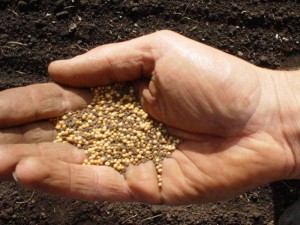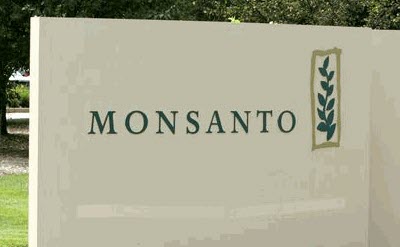The Economic Research Service, an arm of the U.S. Department of Agriculture, in its second report, Genetically Engineered Crops in the United States, downplayed the impact of glyphosate resistance and gave Bt crops the kid gloves treatment.
|
|
|||
|
Is “cutting-edge” biotechnology taking American agriculture backwards into a more toxic past? The appeals court in the Osgata matter held that Monsanto is legally bound not to sue farmers or sellers of seeds that are inadvertently contaminated with up to one percent of seeds carrying Monsanto’s patented traits. The claim that GMOs reduce pesticide use — a main selling point — should be abandoned by the industry that is gobbling up dramatic pesticide sales growth in response to hardy plant pests rapidly adopting and developing resistance to genetically modified crops. What has the existing patent system in agriculture yielded? Seed industry consolidation, increased seed prices, loss of biodiversity, and the stifling of independent research and scientific inquiry. The latest about intellectual property in agriculture. Another study finds inert ingredients in glyphosate formulations to be toxic human cells, questioning regulators’ focus on the active ingredient during the risk assessment process. In a case of national prominence, farmers, seed selling businesses and agricultural organizations are fighting for their right to seek legal protection from accusations of patent infringement by the agri-giant Monsanto should they become contaminated by Monsanto’s GMO seed. Advocacy takes different forms. Harrington Investments and PANNA are trying to foster greater public awareness about Monsanto’s unsustainable corporate practices by engaging in shareholder advocacy. A new report shows an intense worldwide grassroots opposition to the dominance of multinational biotech companies like Monsanto who make big promises but fail to deliver. Not a mere hypothetical disagreement. The OSGATA lawsuit against Monsanto moved forward, despite the lower court dismissal, as more scholars and organizations echo concerns over GMO contamination and onerous lawsuits. Monsanto’s genetically modified soybeans to be used for cooking oil containing lower levels of saturated fats and higher levels monounsaturated fats were approved last year by U.S. regulators. Yet, while Monsanto prepares for product launch, important safety questions remain unanswered. Organic and conventional family farmers, small and family-owned seed companies, and agricultural organizations recently filed an appeal in the case of OSGATA et al v. Monsanto, which was dismissed by a Federal Court in New York on February 24, 2012. The Federal District Court in New York dismissed the organic and conventional farmers’ complaint against Monsanto. But despite the legal loss, the lawsuit leaves a beneficial legacy. This past November, the U.S. Environmental Protection Agency report cited “severe efficacy issues” with Monsanto’s Bt corn after multiple states reported “unexpected pest damage.” Monsanto’s stronghold over seed patents was reinforced recently when an appeals court affirmed a prior ruling against a farmer, this time for buying seeds as “commodity” seeds from a local grain elevator. Farmers and agricultural organizations demanded their right to be heard after Monsanto asked the court to dismiss the lawsuit challenging the company’s aggressive enforcement of genetically modified seed patents. Monsanto is forced to backtrack on a lawsuit alleging that two Erie area farmers saved patented seeds. We look at that and, also, the latest on Anonymous hacking attack against Monsanto “Society stands on the precipice of forever being bound to transgenic agriculture and transgenic food” reads the first sentence in the amended complaint filed by farmers, environmentalist, researchers and consumer groups against Monsanto. New plaintiffs strengthen the resolve to stand up to Big M. Recently, Sec. of Agriculture Tom Vilsack compared biotechnology and sustainable agriculture to two sons, for whom he declared equal love. Read on to learn why biotech has in fact been the agency’s favorite “son.” Lawsuit by organic groups asks Federal court to invalidate Monsanto’s patents and to end Monsanto’s practice of suing farmers over GMO contamination. Conventional and organic farmers and environmental groups filed a lawsuit challenging the USDA’s decision to permit the unrestricted commercial release of genetically engineered alfalfa. A California Appeals Court reversed a lower court’s ruling which would have required the destruction of genetically modified sugar beet seedlings planted in September 2010. The usual and unusual politics surrounding the deregulation of genetically engineered alfalfa. |
|||
|
 |
|||













